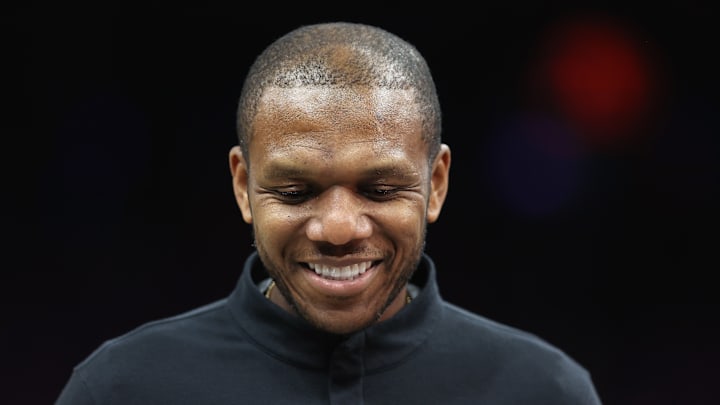It seemed like a foregone conclusion that Nassir Little would be included in a trade if the Phoenix Suns were to make any at this year's deadline. Little had not played meaningful minutes in weeks and has one of the most tradable contracts on the team, so he seemed destined to be moved.
As he’s won't to do though, General Manager James Jones threw a curveball and kept Little out of the trade that landed the Suns Royce O’Neale and David Roddy. Instead, Jones decided to stack up four minimum contracts to complete the acquisitions.
On the surface, it seems irrelevant whether it was Little or the other four included in a trade.
But with the recent changes in the CBA, many of which kick in next season, it actually made a lot more sense for the Suns to hold off on trading Little, at least for now.
Next season the Suns, as a second apron team, won’t be able to add up outgoing salaries in a trade. In other words, they wouldn’t be able to make the kind of trade that they just pulled off by adding a bunch of minimums together to equal a higher paid player's salary.
Nassir Little was in trade talks going into trade deadline, but Jusuf Nurkic brought his name up after Wednesday's practice.
— Duane Rankin (@DuaneRankin) February 9, 2024
"Hopefully we can get Nas, give him a chance to play."
Nurkic, Little teammates in Portland, part of 3-team trade before camp. Little still with #Suns. pic.twitter.com/EDdianZSZ4
If in an alternate reality the Suns had traded Little on Thursday, the only larger than minimum trade pieces they would have at next years deadline would be Jusuf Nurkić, and a re-signed Grayson Allen and Royce O'neale.
Unlike Little, those players all figure to be in the rotation and not pieces you would part with for depth. The Suns would be forced to trade minimum contracts for other minimum contracts, which is unlikely to bring back anything of significant value.
This path then, was a stroke of genius from Jones. Getting the Nets to agree to take four upcoming free agents who are out of the Suns’ rotation so that they can keep Little as a trade piece for next season is incredible attention to detail.
The Suns ultimately not trading for Miles Bridges also helped them maintain that flexibility, as the Charlotte Hornets definitely would’ve balked on an offer made up of minimums without Little attached.
It would also be tougher, and significantly more costly for the Suns to re-sign both Bridges and Allen. That added flexibility is just a footnote in the larger picture of not acquiring Bridges, though.
Over the last year, there has been an erroneous sentiment that the Suns “sold their soul” when putting together this team, specifically in regards to the addition of Durant. That’s just classic fan speak though, an overreaction borne out of an attachment to homegrown players, and jealousy from other fanbases who didn’t land the stars the Suns did.
They made moves that gave them a better chance at winning yes, but they did so by bringing in high character players. There were no moral compromises made.
That wouldn’t have been the case with Bridges. His legal history is well-documented at this point, and he’s clearly unrepentant, as he just had another violent incident a few months ago. The move would've created an unnecessary distraction for a team thats been without them.
It also would've aliented a large portion of the fanbase. That same fanbase has fallen in love with this Suns team, now that we've gotten to know all the new players. Doing anything to break that bond would've been a massive mistake.
It wouldn't have been an overreaction then, to say that the Suns would've sold their soul if they landed Bridges. Thankfully they didn't, and the team and fanbase could move forward without that cloud hanging over their heads.
